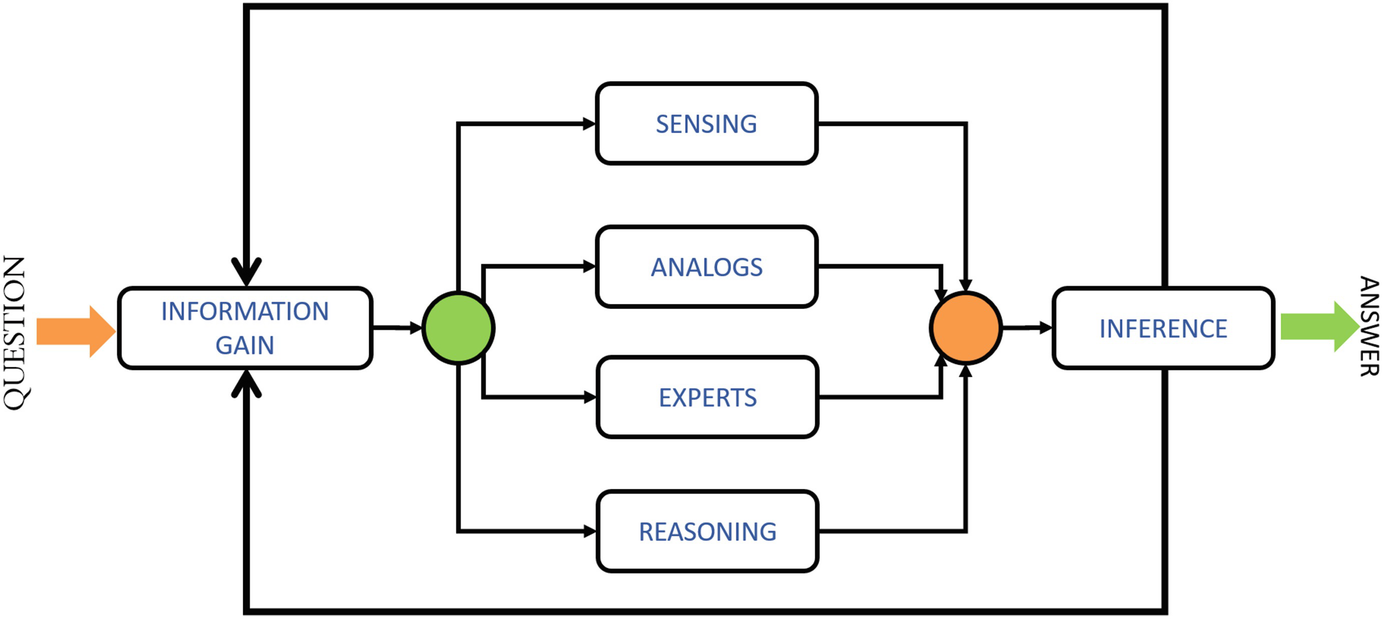Generalized CoAST is an approach that dynamically selects, tunes, combines and adapts theory, analogs (models), experts (oracles), and data (pereception) to maximize information gain for optimizing (or improving robustness, reliability, resilience) inference (or control, estimation, learning, decisions etc). Not only does CoAST infer from these sources in a way that is better than any source alone but, in reverse, it dynamically adapts the sources.
CoAST derives from a rich history in Optimal and Sequential Experimental Design, Incremental Online and Active Learning, Active Sampling, Expected Informativeness, Relevance Feedback, and Co-Active Learning. Generalized CoAST extends the classical notion that typically only involve two-way interactions between specific forms, e.g., Co-Active Learning between humans and machines, or models and instrumentation (e.g., "dddas"). It promotes the "co-evolution of multiple subsystems, each benefiting from the others."
CoAST can be viewed at both the systems and methodological level.
- At a systems level, we apply this approach to the design of Co-Active Observing Systems (CAOS) for CLEPS-related applications.
- At an application level, we apply this approach in the Sloop project to recognize individual animals co-actively with humans. Not only are the humans providing relevance feedback to improve system performance through retraining, but the system is also learning to ask them better questions.
- At a methodological level, we apply this as a Co-Active Learning with Dynamics, Optimization, and Learning Systems (DOLS).
uantifying Uncertainty for Coherent Structures using Field Coalescence
Learning to Predict Uncertainty using Dynamic Data Driven Deep Learning
Quantifying Extreme Rare Event Tails (QuERET)
Decisions with imprecise probabilities
